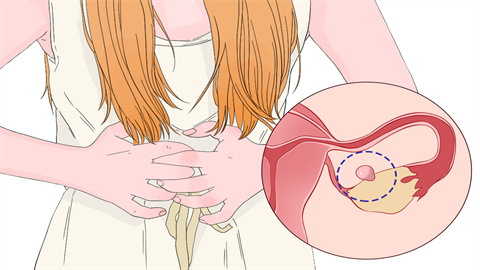What are the symptoms of premature ovarian failure?
Generally, the main symptoms of premature ovarian failure include menstrual irregularities, hot flashes and night sweats, insomnia with frequent dreams, vaginal dryness, and emotional depression. If discomfort symptoms appear, it is recommended to seek timely diagnosis and treatment at a regular hospital. Detailed analysis is as follows:
1. Menstrual Irregularities
Ovarian dysfunction leads to decreased estrogen secretion, affecting the normal cyclical shedding of the endometrium and causing menstrual irregularities. Patients may experience prolonged menstrual cycles and reduced menstrual flow. In severe cases, amenorrhea may occur, and some individuals may also have irregular menstruation and prolonged bleeding.
2. Hot Flashes and Night Sweats
Declining estrogen levels affect the body's temperature regulation center, causing abnormal vasomotor function and resulting in hot flashes and night sweats. Patients suddenly feel heat in the face, neck, and chest, accompanied by sweating. Symptoms are more pronounced at night, and frequent night sweats can disrupt sleep quality.

3. Insomnia with Frequent Dreams
Hormonal changes affect the stability of the nervous system, while discomfort such as hot flashes and night sweats also disturbs sleep, leading to insomnia and vivid dreams. Patients may find it difficult to fall asleep, wake up easily during sleep, experience frequent dreams, feel tired upon waking, and have difficulty concentrating during the day.
4. Vaginal Dryness
Insufficient estrogen secretion deprives the vaginal mucosa of nourishment, causing the mucosa to thin and secretions to decrease, resulting in vaginal dryness. Patients may experience pain and discomfort during sexual intercourse, and may also feel burning or itching in the vagina in daily life, increasing the risk of infection.
5. Emotional Depression
Hormonal fluctuations affect the balance of neurotransmitters, and physical discomfort can lead to emotional depression. Patients often feel depressed, lose interest, lack enthusiasm for life, and some may experience emotional changes such as anxiety and irritability.
If you notice the above symptoms, it is important to maintain a regular作息 (routine), avoid staying up late, and reduce the burden on the ovaries in daily life. Diet-wise, increase intake of soy products, fresh fruits, and vegetables to supplement nutrition. Engage in appropriate exercises such as yoga or walking to regulate your physical condition.





